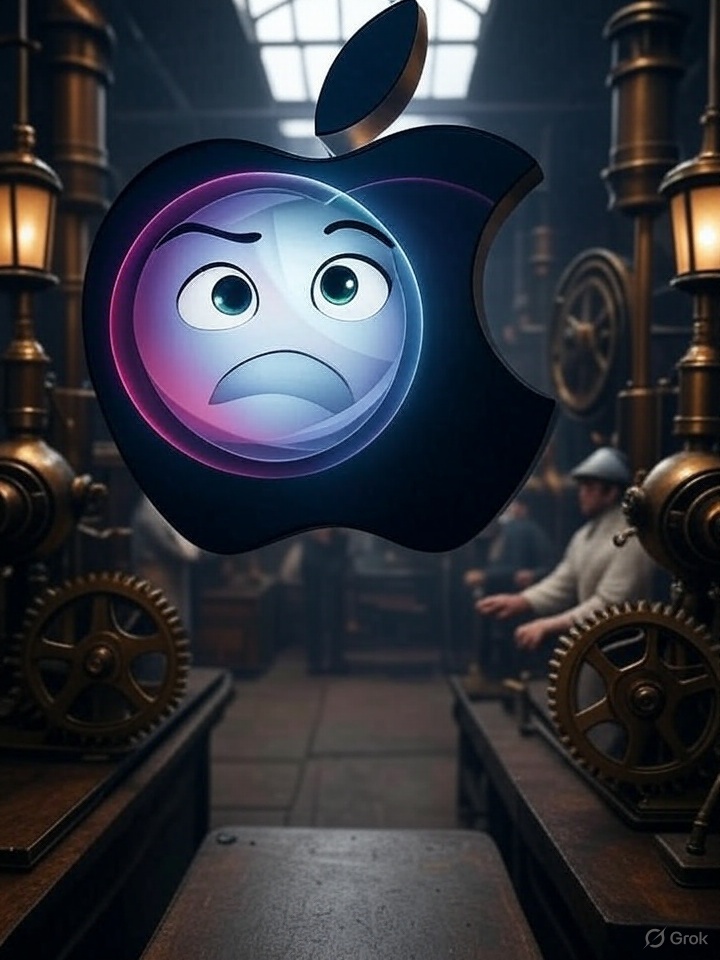In a sprawling new profile by Bloomberg’s Mark Gurman, Apple’s faltering AI ambitions take center stage, painting a stark picture of a tech giant at risk of losing its edge.
 Eddie Cue, Apple’s Senior Vice President of Services and a close confidant of CEO Tim Cook, has sounded the alarm internally, warning colleagues that the company’s leadership in the tech world is under threat.
Eddie Cue, Apple’s Senior Vice President of Services and a close confidant of CEO Tim Cook, has sounded the alarm internally, warning colleagues that the company’s leadership in the tech world is under threat.
Unlike ExxonMobil, which delivers a commodity the world will always need, Cue fears Apple could face a fate similar to Nokia’s after the iPhone’s rise — disrupted into irrelevance by AI.
In a recent federal court testimony tied to the Department of Justice’s lawsuit against Alphabet, Cue went further, stating that the iPhone could become obsolete within a decade, a notion he admitted sounds “crazy” but feels increasingly plausible.
Gurman’s report delves into the root causes of Apple’s AI woes, spotlighting a mix of cultural inertia, strategic missteps, and structural challenges.
John Giannandrea, Apple’s former AI chief hired from Google in 2018, is singled out for betting on the wrong priorities, focusing on incremental improvements rather than the transformative generative AI technologies that competitors like OpenAI and Google have capitalized on.
 Apple’s staunch commitment to privacy has also hindered progress, limiting the company’s ability to leverage user data for AI training at the scale of its rivals. Additionally, Apple’s reluctance to invest heavily in GPU infrastructure — critical for training large language models (LLMs) — has left it lagging, with internal estimates suggesting the company is at least two years behind industry leaders.
Apple’s staunch commitment to privacy has also hindered progress, limiting the company’s ability to leverage user data for AI training at the scale of its rivals. Additionally, Apple’s reluctance to invest heavily in GPU infrastructure — critical for training large language models (LLMs) — has left it lagging, with internal estimates suggesting the company is at least two years behind industry leaders.
The profile highlights Apple’s current efforts to course-correct, centered on a team in Zurich working to rebuild Siri on LLM rails. Thousands of analysts are involved, meticulously refining the model’s responses, but the results are far from perfect — Siri still delivers incorrect answers in roughly a third of cases.
This underscores a broader issue: Apple’s methodical, perfectionist approach is struggling to keep pace with a market where tectonic shifts in AI happen almost monthly. Competitors like OpenAI and Google are iterating rapidly, while Apple remains bogged down by its own processes and priorities.
One potential lifeline, Gurman notes, could be an acquisition of Perplexity, a startup known for its AI-driven search capabilities. Apple is reportedly in preliminary talks with Perplexity, exploring a partnership that could see its technology integrated as a Siri replacement. Such a move could help Apple leapfrog its current limitations, offering a more competitive AI experience.
 However, even this solution faces hurdles — Apple’s slow decision-making and integration processes might not align with the urgency required to regain ground in the AI race.
However, even this solution faces hurdles — Apple’s slow decision-making and integration processes might not align with the urgency required to regain ground in the AI race.
Also read:
- Google Introduces Real-Time Dubbed Translation in Meet, Powered by Gemini AI
- Standing Seats Take Flight: Budget Airlines to Introduce Skyrider 2.0 in 2026
- Volvo to Be First Automaker to Integrate Google’s Gemini AI in Cars
The stakes couldn’t be higher. As Cue’s warnings suggest, AI isn’t just another feature — it’s a potential existential threat to Apple’s core business.
If the company can’t adapt quickly, it risks becoming a cautionary tale, much like Nokia in the smartphone era.
For now, Apple’s future in AI hangs in the balance, with its ability to innovate at speed being the ultimate test.






